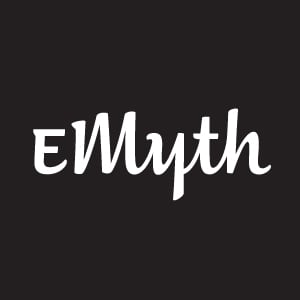My wife Joyce and I own Junior Reign Youth Hockey Club, a youth ice-hockey organization for all levels of play and ability with teams for children ranging from five to eighteen. We have kids that are just starting, to kids who are trying to pursue collegiate or professional careers.
My whole life, all of my jobs—from part-time to summer and spring breaks—I was working with kids at different hockey camps. I was a collegiate hockey player, a minor pro hockey player and a hockey coach. My wife is an athlete too, and a lot of who we are is from our experiences in youth sports and what sports has given to our lives.
While I was working as a director of a hockey rink, the opportunity came up to buy this really small youth organization. We wanted to build a career out of something we were passionate about and we were really excited, but also scared. People were telling us ‘you can’t make money in youth hockey’—that we shouldn’t do this. In 2011, we took the leap and put our life savings into the company. There were a lot of challenges early on and we didn’t have any real business ownership experience. We started EMyth Coaching in 2013 and discovered that most of the coaching experience is about personal growth and development.
You wonder if there’s a light at the end of the tunnel, because you can never seem to get ahead. You’re involved with doing so much of the day-to-day that you don’t have time to step out. There were times when we wondered if this really was what we wanted to do, if it was viable, if it was making the impact we wanted. EMyth Coaching really helped me step back and make the time to start asking those questions. What should this be? What could it be?
I realized that a lot of the things that needed to change in my business, really needed to change inside of me first. Like how I organize my time, being direct with other people, committing to being organized and holding myself accountable. There are processes for all of that, but it goes beyond the worksheets and papers—it’s about being honest with yourself. It can be painful, but you’re taking accountability for what you want in your life and you’re not making excuses.
Ben’s willingness to confront his challenges have proved mighty as he unapologetically continues to take his model of child first coaching and athletics to bigger audiences and markets. They've already established themselves in several regions, and successfully differentiated the league and business model in ways that are rooted in what's deeply meaningful for them. They've come a huge distance, in a short while. But his hunger is just getting going... I'm grateful to support him on this journey. —Jefferson Duval
At first, you think you don’t have time for that. You’re like, ‘well, I have a lot of stuff to do’. But sitting down, talking about what we wanted for our lives, what we wanted for our legacy and what we envisioned for the future—it changed the way we made decisions.
For example, we connected our programming to a new initiative by USA Hockey, which is the governing body for organized amateur ice hockey. We became one of seventeen clubs in all the US named as a model association by USA Hockey for our commitment to age appropriate, long-term development. We’re the only club, still, in Southern California to do that, even though there are clubs that have been around longer with more funding.
Some of those big changes came from having a bigger vision, and a bigger purpose. We even partnered with the Positive Coaching Alliance, which is about how you treat children in sports and the parent/coach relationship. It led to a change in our location to expand to two facilities with that partnership. All of these things came from knowing what we wanted the business to be. Tough decisions actually became easier because it was clearly connected to what we wanted our business to stand for—even if it meant losing some money or clients.
At the same time, the values of our business have really aligned with how we deliver to our customers. Getting business coaching has a lot to do with a commitment to personal growth and having a curiosity to improve—and that's exactly what we want for our kids and coaches. We want them to grow in skill but also as teammates and students. Our staff is committed to their own personal development and to think what can they do better, what can they do more efficiently and clearly. And that even translated to how we hire staff. It became an internal thing; it impacted our whole culture.
I’ve struggled with my business being something that makes money because I want it to help kids and families. But EMyth is very similar in the sense that there’s a personal interest on helping me, on finding out what’s best for me and my business. In that way, EMyth helped me realize that you can be a successful, profitable business without taking advantage of people. You can give people more value than what they’re paying for.
Now when I think about my business, it’s exciting. Before, I thought the pinnacle was just having a bigger impact, but now it seems like there is so much more. There are things that didn’t feel possible, that now feel wide open.



Comments